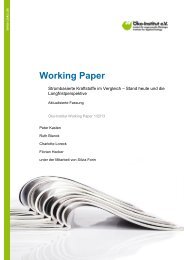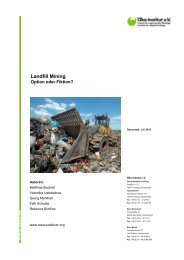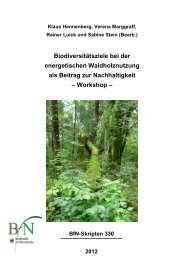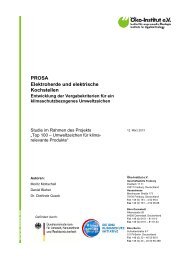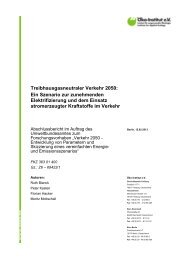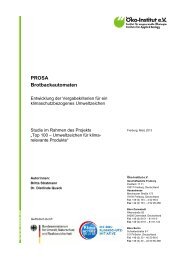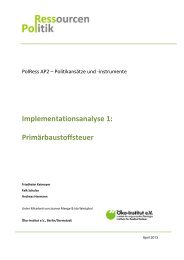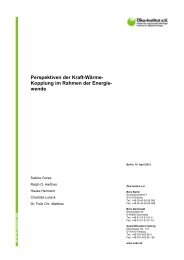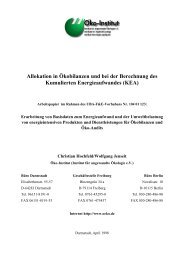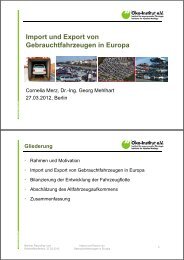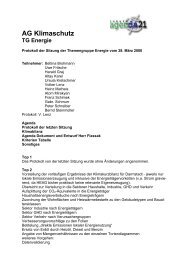Recycling critical raw materials from waste electronic equipment
Recycling critical raw materials from waste electronic equipment
Recycling critical raw materials from waste electronic equipment
Create successful ePaper yourself
Turn your PDF publications into a flip-book with our unique Google optimized e-Paper software.
Figure 1: Global end-of-life recycling rates for 60 metals (Graedel et al. 2011)<br />
2<br />
<strong>Recycling</strong> <strong>critical</strong> <strong>raw</strong> <strong>materials</strong> <strong>from</strong> <strong>waste</strong> <strong>electronic</strong><br />
<strong>equipment</strong><br />
Many of the <strong>critical</strong> metals examined in this study, especially the rare earths (lanthanides<br />
plus scandium and yttrium) as well as tantalum, gallium and indium show total end-of-life<br />
recycling rates of less than 1%. The recycling situation for precious metals (platinum,<br />
palladium, gold, silver) and cobalt is significantly better with rates above 50%. There are<br />
already advanced recycling methods for these metals and functioning collection systems, at<br />
least for some applications (e.g. industrial catalysts, special alloys).<br />
The study for the North Rhine-Westphalia State Agency for Nature, Environment and<br />
Consumer Protection (Landesamt für Natur, Umwelt und Verbraucherschutz Nordrhein-<br />
Westfalen) will also continue to examine the important precious metals gold and silver. It<br />
requires great effort to extract these sought-after and valuable metals <strong>from</strong> the natural ores.<br />
They are therefore important drivers for recycling operations, particularly in the field of<br />
<strong>electronic</strong> products. Many experts classify silver as a <strong>critical</strong> <strong>raw</strong> material, even though this is<br />
not on the EC's list of 14 <strong>raw</strong> <strong>materials</strong> (Buchert et al. 2011). The aim of this study for the<br />
North Rhine-Westphalia State Agency for Nature, Environment and Consumer Protection is<br />
to produce an analysis of the <strong>critical</strong> metal potential for the selected product groups and <strong>from</strong><br />
this, identify shortcomings in the recycling infrastructures and technologies in order to



